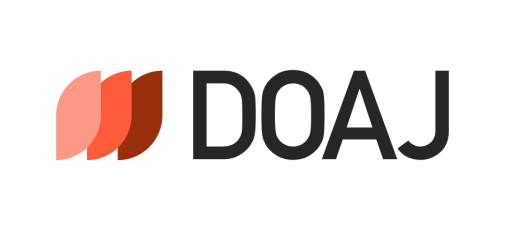Pengembangan Website Cybercounseling Realita untuk Meningkatkan Keterbukaan Diri Siswa Sekolah Menengah Kejuruan
Abstract
Abstract: This research and development aims to produce a cybercounseling reality website and a reality cybercounseling guidebook to improve self-disclosure for Vocational High School students which are grateful theoretically and practically. The research and development study steps are: preliminary study, product development, and product test. Product’s guidelines are tested using one group pretest-posttest design. Product test results show that cybercounseling reality website is gratefully theoretically and practically and also effectively to improve Vocational High School students’ self-disclosure.
Abstrak: Penelitian dan pengembangan ini bertujuan menghasilkan website dan panduan cybercounseling realita untuk meningkatkan keterbukaan diri siswa Sekolah Menengah Kejuruan (SMK) yang berterima secara teoretis dan praktis. Rancangan penelitian ini menggunakan penelitian dan pengembangan dengan langkah: studi pendahuluan, pengembangan produk, dan uji produk. Panduan penggunaan produk diuji menggunakan one group pretest-posttest design. Hasil uji produk menunjukkan bahwa website cybercounseling realita berterima secara teoretis dan praktis serta efektif untuk meningkatkan keterbukaan diri siswa SMK.
Keywords
Full Text:
PDFReferences
Amedie, J. (2015). The Impact of Social Media on Society. Advanced Writing: Pop Culture Intersections. 2. Diambil dari https://scholarcommons.scu.edu/engl_176/2
Andari, A. (2015). Peningkatan Keterbukaan Diri (Self Disclosure) Melalui Konseling Kelompok dengan Pendekatan Person Centered pada Siswa Kelas VII SMP IT Abu Bakar Yogyakarta. Jurnal Riset Mahasiswa Bimbingan Dan Konseling, 4(2).
Asandi, Q., & Rosyidi, H. (2010). Self-disclosure pada Remaja Pengguna Facebook. Jurnal Penelitian Psikologi, 1(1), 87–98.
Baker, K. D., & Ray, M. (2011). Online Counseling: The Good, The Bad, and The Possibilities. Counselling Psychology Quarterly, 24(4), 341–346. https://doi.org/10.1080/09515070.2011.632875
Baker, K. R. (2013). Making Ethics Work: Manage Your Counseling Time. Drug Topics, (OCT). Diambil dari http://www.drugtopics.com/legal-compliance/making-ethics-work-manage-your-counseling-time
Baloglu, S., & McCleary, K. W. (1999). A Model of Destination Image Formation. Annals of Tourism Research, 26(4), 868–897. https://doi.org/10.1016/S0160-7383(99)00030-4
Barak, A., & Gluck-Ofri, O. (2007). Degree and Reciprocity of Self-disclosure in Online Forums. CyberPsychology & Behavior, 10(3), 407–417.
Bloom, J. W. (1998). The Ethical Practice of Web Counseling. British Journal of Guidance and Counselling, 26(1), 53–59.
Bloom, J. W., & Walz, G. R. (2003). Cybercounseling & Cyberlearning: An Encore. ERIC.
Burdenski Jr, T. K. (2011). Extending Reality Therapy with Focusing: A Humanistic Road for The Choice Theory Total Behavior Car. International Journal of Choice Theory and Reality Therapy, 31(1), 14.
Dewanti, T. C., Widada, W., & Triyono, T. (2016). Hubungan Antara Keterampilan Sosial dan Penggunaan Gadget Smartphone terhadap Prestasi Belajar Siswa SMA Negeri 9 Malang. Jurnal Kajian Bimbingan dan Konseling, 1(3), 126–131. https://doi.org/10.17977/um001v1i32016p126
Efendi, A. (2009). Beberapa Catatan tentang Buku Teks Pelajaran di Sekolah. Insania, 14(2), 320–333.
Frame, M. W. (1997). The Ethics of Counseling via The Internet. The Family Journal, 5(4), 328–330. https://doi.org/10.1177/1066480797054009
Gainau, M. B. (2009). Keterbukaan Diri (Self Disclosure) Siswa dalam Perspektif Budaya dan Implikasinya Bagi Konseling. Jurnal Ilmiah Widya Warta, 33(1), 95–112.
Glasheen, K. J., Shochet, I., & Campbell, M. A. (2016). Online Counselling in Secondary Schools: Would Students Seek Help by This Medium? British Journal of Guidance and Counselling, 44(1), 108–122. https://doi.org/10.1080/03069885.2015.1017805
Glasser, W. (1999). Choice Theory: A new Psychology of Personal Freedom. HarperPerennial.
Grinter, R. E., Palen, L., & Eldridge, M. (2006). Chatting with Teenagers: Considering The Place of Chat Technologies in Teen Life. ACM Transactions on Computer-Human Interaction, 13(4), 423–447. https://doi.org/10.1145/1188816.1188817
Harris, B., & Birnbaum, R. (2015). Ethical and Legal Implications on The Use of Technology in Counselling. Clinical Social Work Journal, 43(2), 133–141. https://doi.org/10.1007/s10615-014-0515-0
Jannah, R., Zen, E. F., & Muslihati, M. (2016). Pengembangan Permainan Simulasi Keterbukaan Diri untuk Siswa SMP. Jurnal Kajian Bimbingan dan Konseling, 1(2), 74–78. https://doi.org/10.17977/um001v1i22016p074
Katayama, M. (1996). The Relationship between Self-esteem and Self-disclosure of Negative Information. Shinrigaku Kenkyu, 67(5), 351–358. https://doi.org/10.4992/jjpsy.67.351
Maples, M. F., & Han, S. (2008). Cybercounseling in The United States and South Korea: Implications for Counseling College Students of the Millennial Generation and The Networked Generation. Journal of Counseling & Development, 86(2), 178–183. https://doi.org/10.1002/j.1556-6678.2008.tb00495.x
Murphy, L., MacFadden, R., & Mitchell, D. (2008). Cybercounseling Online: The Development of A University-Based Training Program for E-mail Counseling. Journal of Technology in Human Services, 26(2–4), 447–469. https://doi.org/10.1080/15228830802102081
Nehra, N. S., & Rangnekar, S. (2017). Relationship Understanding Between Emotional Stability, Self-disclosure and Social Adjustment. Journal of Intercultural Communication Research, 46(6), 558–578. https://doi.org/10.1080/17475759.2017.1387165
Novalina, S. D. (2017). Efektivitas Konseling Realitas untuk Meningkatkan Penyesuaian Diri. Analitika, 7(2), 99–104.
Pinarti, P. (2010). Pengembangan Inventori Keterbukaan Diri (Self Disclosure) Sebagai Instrumen Layanan Bimbingan Pribadi bagi Siswa SMK Negeri 1 Malang. Universitas Negeri Malang.
Rachman, S. (2016). Peran Guru Bimbingan dan Konseling dalam Pengembangan Profesional Guru di Jawa Timur. In Seminar Nasional Bimbingan dan Konseling.
Radjah, C. L. (2016). Keterampilan Konseling Berbasis Metakognisi. Jurnal Kajian Bimbingan dan Konseling, 1(3), 90–94. https://doi.org/10.17977/um001v1i32016p090
Saroh, S. (2010). Pengembangan Panduan Pelayanan Konseling Melalui Media Facebook. Universitas Negeri Malang.
Sastama, G. D., Muslim, M., & Djannah, W. (2017). Keefektifan Homeroom untuk Meningkatkan Keterbukaan Diri Siswa SMP. Consilium: Jurnal Program Studi Bimbingan dan Konseling, 5(1), 17–24.
Sukmadinata, N. S. (2012). Metode Penelitian. Bandung: PT Remaja Rosda Karya.
Swenson, L. P., & Rose, A. J. (2009). Friends’ Knowledge of Youth Internalizing and Externalizing Adjustment: Accuracy, Bias, and The Influences of Gender, Grade, Positive Friendship Quality, and Self-disclosure. Journal of Abnormal Child Psychology, 37(6), 887–901. https://doi.org/10.1007/s10802-009-9319-z
Tiwasing, W., Sahachaisaeree, N., & Hapeshi, K. (2014). Design Goals and Attention Differentiations Among Target Groups: A Case of Toy Packaging Design Attracting Children and Parents’ Purchasing Decision. Design Principles and Practices, 7(1), 29–43.
Weddel, K. S. (2009). How to Choose a Good ESL Textbook. Northern Colorado Professional Development Center, 1–14.
Wubbolding, R. E. (2013). Reality Therapy for The 21st Century. Routledge.
Refbacks
- There are currently no refbacks.
Copyright (c) 2018 Abi Fa'izzarahman Prabawa, M Ramli, Lutfi Fauzan

This work is licensed under a Creative Commons Attribution-ShareAlike 4.0 International License.
Jurnal Kajian Bimbingan dan Konseling
ISSN 2503-3417 (online), ISSN 2548-4311 (print)
Email: jkbk.fip@um.ac.id
Find Jurnal Kajian Bimbingan dan Konseling on:
 This work is licensed under a Creative Commons Attribution-ShareAlike 4.0 International License |  |
View Visitor Stats







